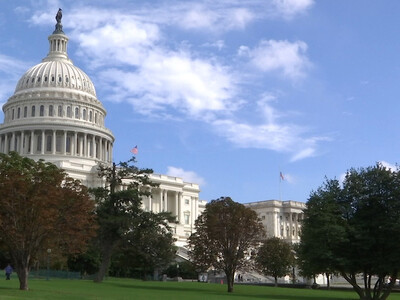ESA Changes
The Trump administration has proposed sweeping changes to the Endangered Species Act.The Department of the Interior's game-changing proposal reverses longstanding rule prohibiting consideration of economic impacts when deciding whether to list a species as endangered or threatened. It also eliminates key protections for threatened species and weakens environmental consultation requirements. Environmental groups are blasting the proposed changes. Defenders of Wildlife CEO Jamie Rappaport Clark says the new rules drastically undercut the ESA. "These regulations are the heart of how the Endangered Species Act is implemented. Imperiled species depend on them for their very lives. Unfortunately, the sweeping changes being proposed by the Trump administration include provisions that would undercut the effectiveness of the ESA and put species at risk of extinction." said Rappaport.
Rappaport says the proposal eliminates environmental impact statements when listing species.
"It also removes conservation protections for threatened species, narrow interagency consultation requirements and allow federal agencies to blind themselves to the broad consequences of their actions," added Rappaport.
The signal being sent by the Trump administration is that they're seeking a balanced playing field.
Zippy Duvall, president of the American Farm Bureau Federation, said that "Farm Bureau is pleased to see that the Trump administration is prioritizing regulatory improvements to the (ESA). We look forward to reviewing the proposals in greater detail with our members and providing constructive comments to the docket. We are hopeful that the proposed rules will provide clarity and certainty, encourage voluntary conservation work, increase local involvement and chart a path for real recovery and delisting of species."
Background
The proposals for changes to the Endangered Species Act regulations will result in fewer protections for species and their habitat:
Proposed changes to the regulations would open the door for the economic impacts of listing a species to be evaluated and presented in the listing rules. Life is priceless, and decisions regarding listing must by law be based solely on the best available scientific and commercial data, without regard to economic costs or benefits. Doing irrelevant economic analysis would be an unnecessary burden on the Fish and Wildlife Service, and raise the possibility that the information is improperly being considered.
Proposed changes will stack the deck against protection of threatened species by eliminating a rule extending the ESA's prohibition on "take" to threatened species. Under the proposed regulation, threatened species will receive no protection from take or commercial exploitation unless the U.S. Fish and Wildlife Service (FWS) writes a special rule providing such protection. The new rule increases the risk that threatened species will be deprived of needed protection because the FWS lacks resources to write such special rules or because of political decisions to shield developers and extractive industries from regulation.
Proposed changes will allow federal agencies to blind themselves to the broad consequences of their actions through changes to the consultation requirements of Section 7 of the Act. Section 7 consultations require that a federal agency that is funding, authorizing or conducting an activity to consult with FWS or the National Marine Fisheries Service (NMFS) to ensure that the activity does not jeopardize the continued existence of endangered or threatened species or destroy their critical habitat.
The proposed changes will unreasonably narrow the effects of agency actions required to undergo these consultations. For example, the proposed rule seeks comment on changes that would bar consultation for effects like climate change that are "manifested through global processes." It also seeks comment on restricting consultation to the activities within a federal agency's regulatory authority, allowing agencies to ignore the larger impacts of development on species and their habitat. In addition, the rule seeks comment on excluding the effects of all ongoing federal activities from consultation.
After being published in the Federal Register, the services will take comments for 60 days, but it's likely many groups will ask for more time.
The proposal comes as lawmakers in both the House and Senate are floating legislative proposals to amend the ESA. With time limited on the congressional schedule, however, the chances of getting ESA reform passed this year are slim.















